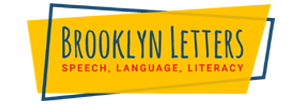Download our Free Everything You Need to Know About Late Talking pamphlet here.

Hearing your child talk for the first time is one of the most magical moments of parenthood. It is also a significant milestone in your child’s growth and development. But when a toddler shows signs of limited or delayed speech and vocabulary, it naturally becomes a concern for parents. So what can you do when you notice that you have a late talker? That is where a speech-language pathologist comes in.
A speech-language pathologist’s (SLP) job is to prevent, assess, diagnose, and treat communication and swallowing disorders in children and adults. These problems include:
- Speech sounds (enunciation)
- Language (expressive, receptive, auditory)
- Literacy and its connection to Language
- Social communication
- Voice
- Fluency
- Cognitive communication
- Feeding and swallowing
While late talking is more common than we think, early intervention is critical to ensure a child does not fall behind his peers. Below, we answer the most common questions about late talking or speech delay to help you check for warning signs and find the best support for a late talker.
How to Tell If Your Child is a Late Talker
According to The Hanen Centre, a late talker is a child between 18 and 30 months with a good understanding of language and typical development in other areas (hearing, vision, motor, and cognitive skills) but has a limited spoken vocabulary compared to peers for their age. While some children manage to catch up on their own, others are not able to.
For some parents, this may not be that great of a concern. Especially since one of the things we often hear when it comes to child development is how children develop at their own pace. And while this is true to some extent, there are benchmarks that a child must meet at a specific age.
It is important to take note of your child’s communication milestones as these can help you make an informed decision if you should consult with a speech-language pathologist.
These milestones are:
- 18 months – Using at least 5-10 words, such as nouns (“baby,” “cookie,”), verbs (“eat,” “go,”), prepositions (“up,” “down,”), adjectives (“hot,” “sleepy,”), and social words (“hi,” “bye,”).
- 24 months – Using at least 50 spontaneous words and combining two words generated by the child instead of “memorized” chunks or phrases (“thank you,” “bye-bye,” “all gone,”). True word combinations include “doggie gone,” “eat cookie,” or “dirty hands.”
Additionally, most experts agree that at 12 months, toddlers should already be saying at least a few single words with meaning such as “mama” and “dada” and can understand and follow simple commands such as picking up a toy.
For a more in-depth understanding of your child’s speech, language, and hearing development, check out this development chart (hearing/understanding and talking) by the American Speech-Language-Hearing Association (ASHA).
Here are my personal favorite comprehensive speech-language developmental charts (hard to come by…).
Neurological and Developmental Foundations of Speech Acquisition
If you want to learn more if your child’s late talking might be a problem or if she’s a late bloomer, read this article (ASHA).
What Causes Late Talking in Children?
While developmental and physical delays (such as cerebral palsy, Down Syndrome, autism, or childhood apraxia) are factors in communication disorders, the cause of late talking in children developing normally in other areas is yet to be agreed upon by experts. It is neurodevelopmental in nature, which means their linguistic neural connections are less sophisticated than peers. It is not a visible problem until it becomes an issue.
However, studies do show that a late talker is more likely to:
- Have a family history of early language delay
- Be male and have been born at less than 85 percent of their optimal birth weight or less than 37 weeks gestation
Research has also found that approximately 13 percent of two-year-olds are late talkers.

What are the Outcomes of Late Talking in Children?
An ASHA study on Late Language Emergence mentions that by late preschool and school-age, about 50 to 70 percent of late talkers are able to catch up and show normal language development. However, the study also reports that a late talker is more prone to develop language and literacy difficulties later on.
Some of the outcomes listed by the study include:
- At age 5, children identified as late talkers showed lower scores on complex language skills, such as narrating a simple story.
- At age seven, children identified as late talkers had reduced performance when it came to general language ability and grammar.
- At ages eight and nine, children identified as late talkers show poorer performance in reading and spelling.
- At age 13, children identified as late talkers had lower scores on aggregate measures on vocabulary, grammar, verbal memory, and reading comprehension.
- At age 17, children who were late talkers showed poorer scores on vocabulary/grammar and verbal memory factors.
These outcomes are further supported by studies mentioned in another article published by The Hanen Centre. According to researchers, late talkers who eventually “grow out of it” have been found to show weaknesses in:
- Some language and literacy skills, including vocabulary, grammar, phonology, reading, creating stories, writing, reading, and listening comprehension, which can prevail until adolescence.
- Skills that rely on language such as social, behavioral, and executive function skills (planning, organizing, paying attention, and controlling impulsive behavior).
- Processing speech. In a study on children ages three to five years old, researchers found that those identified as late talkers do not process the speech they hear as easily as their peers do. It implies an immature or less developed speech/language processing skills, which can affect language and literacy development.
When to Seek Help for a Late Talker?
Given the amount of parenting information accessible today, it is not surprising to see varying opinions on late talking. Some parents opt to go the wait-and-see route, but experts agree this might not be what is best for the child.
Early awareness and intervention are crucial to prevent late talking from affecting a child’s socialization skills and school-readiness. Not to mention, in preventing any continuing language disabilities. This is even more important when your child exhibits the following risk factors:
- Quiet or little babbling as an infant
- Has a history of ear infections
- Limited consonant sounds
- Does not link pretend ideas and actions together during play
- Does not imitate words or sounds
- Uses mostly nouns and few verbs
- Difficulty interacting or playing with peers
- A family history of communication, learning, and academic difficulties
- Mild comprehension delay for their age
- Uses few gestures to communicate
According to experts, children with a limited vocabulary for their age and show any of the above risk factors should seek the help of a speech-language pathologist. In particular, studies suggest that the last three risk factors listed are indicators that a child could have continuing language delay.
Your child can be at risk for showing signs of a language disorder (expressive or expressive/receptive language) also known as a Developmental Language Disorder (DLD), or as the research calls it Language Impairment. Read this article to learn more about the relationship between language and learning disabilities.

How Can Speech-Language Therapy Help a Late Talker?
The first step in seeking help for late talkers is having their hearing evaluated. This is to make sure they are able to hear sounds at different volumes and pitches. Pediatricians typically perform screens. Audiologists fully evaluate your child’s hearing, even if you believe your child hears everything. You do not know if your child is detecting differences in sounds.
You can then consult a speech-language pathologist to address your concerns about your child. During your session, the SLP will:
- Begin by discussing your concerns
- Assess your child’s ability to understand, speak, and use gestures
- Identify the type of communication disorder (if there is one) and the best way to treat your child
Providing your child with the best support starts with finding the right professionals that can create a custom program for your child.
Brooklyn Letters is a New York-based private speech-language therapy and tutoring company fully committed to providing fun, individualized, and dynamic tutoring, coaching, and therapy sessions for children and teens. We are Late Talking experts.
Brooklyn Letters treats all kinds of speech and language delays and learning difficulties, specializing in evaluating and treating babies through adolescents.
Our services include:
- Online Services
- Pronunciation (all ages)
- Early Childhood Expressive Language
- School Age Expressive Language
- Autism Spectrum Disorder (PDD, Aspergers, etc.)
- Social Skills
- Stuttering
- Listening Difficulties (auditory and language processing)
- Picky Eaters and Early Childhood Feeding Delays
- Adult Speech Therapy
- Bilingual Services
- Voice Therapy
- Public Speaking
- Accent Reduction Modification Speech Therapy
- Speech Language Therapy for Teens
- Oral Motor Speech Therapy
- Receptive Language Disorder
- Expressive Language Disorder
- Infant/Toddler/Childhood Feeding Therapy
- Augmentative and Alternative Therapy (AAC)
- Social Skills
- Developmental Language Disorder Therapy
- Deaf Hard of Hearing
- Math Tutoring (K-5) (Fractions, Multiplication, Word Problems, Place Value)
- Orton Gillingham Approach
- Wilson Reading Tutor
- Special Education Itinerant Teacher – SEIT
- Writing & Speaking Intervention
- Writing Intervention
- Comprehension- Listening & Reading Intervention
- Reading Comprehension Tutoring
- Decoding and Encoding
- Reading Fluency Services
- Spelling Intervention
- Vocabulary Intervention
- Handwriting Tutoring
Brooklyn Letters offers in-home and online literacy (Orton-Gillingham approach), math tutoring services, and speech, language, and feeding therapies in the New York City metro area seven days a week. We also affer speech and language evaluations, and feeding evaluations. We Travel Throughout Manhattan, Queens, Staten Island and Long Island.
Get in touch with Brooklyn Letters and our CEO, Craig Selinger– Speech Language Pathologist at:
(347) 394-3485
(917) 426-8880
Text: (917) 426-8880
———-
Want to keep this article always on-hand? Download and read this blog in PDF by clicking this link!
———-
Watch this short video for a quick rundown of all the important things you need to know about late talking!
———-
Want to know what the experts say about late talking? Watch our interview with Dr. Michelle to find out more about late talking diagnosis, therapy, and tips!
Craig Selinger
Latest posts by Craig Selinger (see all)
- Private-Pay NYC SETSS: Special Education Teacher Support Services - June 29, 2022
- 7 Do’s and Dont’s of Teaching Self-Control to Young Children - June 11, 2022
- 8 Tips to Help Parents Practice Positive Parenting - June 11, 2022

My son probably belongs to the 13% of kids who are late talkers around his age. After letting him play with neighborhood kids, we eventually realized that he isn’t quiet and is really struggling with speech. It might be better to have him checked by experts in speech pathology and see if there is a treatment that can help him.
It doesn’t hurt to consult with an expert!
My son is three years and is now slowly catching up more words. But my biggest worry is whether he will really be able to catch up especially when he starts preschool next year after we are done with the pandemic.
If you have any questions, feel free to reach out to us. Happy Thnaksgiving! Craig
Hey my baby girl is 4 years old and doesnt talk.. she only uses words she wants to like ”icecream” she never copy what you tell her only when she is in the mood to copy animal names she will but mostly she is quite and uses alot of actions when she needs somthing. Do you think she is anlate talker or she got other problem
Thanks for posting. These are red flags and please have you child evaluated for speech language therapy services.
Will a late talker follow typical language patterns when they do acquire more language. Example my daughter is 2.5 and has gone from 35 to 250 words in a few months since starting speech therapy but shes in the labeling phase and has about 50 two word combos and she speaks mostly with the final consonant deleted…so she seems to be following what typical children do… kind of going through all the steps per se, is this normal and a good sign?
And your daughter made some serious leaps! These are great questions! Some late talkers follow typical trajectories while others will show “disordered” acquisition of language. Here’s more info about these profiles: https://brooklynletters.com/developmental-language-disorder/ and https://brooklynletters.com/specific-language-impairment/
My son completed 3 years 4 month but couldn’t say atleast 10 words . What can I do for this please help me .
Can you set up an appointment with a local speech-language therapist?
My son will be 3 in September. He has always babbled a lot, and he still does. He has a very active imagination, he plays with action figures and babbles at them and makes them have little conversations. He is very physically active as well. But he doesn’t say a lot of words. And he has only just started saying 2 word combinations. He will babble my ear off. And he seems to understand when I ask him to do things. I don’t know if waiting is still right! Every time I start to worry, he starts talking a little more. But I know he’s still behind other kids his age. I don’t know what to do!
Thanks for posting! Yes, he needs to be evaluated by a speech language therapist/pathologist because he’s exhibiting a significant expressive language delay. Let us know if we can help! Best, Craig Selinger
Hi!
I have twin boys who are 27 months old. They are bilingual they say about 70 words and say a bunch of two word sentences. At 2 years they had only 20 words so they definitely are making progress. I had them evaluated at 20 months and the evaluators didn’t seem concerned at all. My question is do you think I should get them evaluated again? Or are they progressing enough that I should wait and see?
Thanks for chiming in! It's ounds like your boys are in better speech-language territory now than when they were 24 months old. Without observing them in person I can’t make any recommendations.
However, please keep a close eye on their speech-language development for the next 3-6 months. Best, Craig Selinger
My daughter is 2 years and 6 months she recognize all the alphabets and numbers up to 10 she knows seven colours . When she is hungry she say bread or chocolate. If she wants to go outside to play she brings me her shoes . She can point to her body parts if I asked her, but she doesn’t talk just some single words if I asked her to name it , but never two words sentence . Should I be worry or she is ok?
Yes, please have her evaluated by a speech pathologist/therapist and keep me posted!
My son is 2.5, knows all the alphabets, numbers to 100 and counts backwards too, he knows all the nursery songs he listens to memorized, knows a lot of words, but doesn’t talk in sentences.
He says “Mommy come on” when we are about to leave. But doesn’t make a conversation or reply to a question at all. He understand when I tell him go throw this in the garbage bin. I’m starting him in nursery next week because he has no other kids around him and I want him to be more social. Should I be concerned?
Please have his social use or pragmatics evaluated by a speech pathologist who specializes in toddlers.
My son is 1 sorry foe the miss spell
Is he 12 months or is he older? Thanks
My son is one and he says Dada, mama and that is it should I get him in to see a speech language therapist please let me now I am worried about my son I live in pilot knob Missouri. And I am sorry for the miss spelled words
My son is 16 months and only say dadd and mama but he understands when I call his name what should I do I’m really worry
A speech-language pathologist can also assess your child’s play skills, joint attention, non-verbal communication e.g. pointing, pulling, etc, frequency of initiating communication, sound repertoire, and more!
So we would need to see the full picture!
My son is 4 and is non verbal , when he was toddler he was babbling a lot , then He went quiet no words !
Last year there was some words just echoing me so hello ,hiya ,sorry ,out , sssh .nooo
He copied me if I said these words also started using toilet around this time .. but since then he’s went quiet again no copying /no words … I feel he can say words but just isn’t makin that connection . At the moment developmentally he is behind his peers , I do worry , but I’m hopeful he will start mayb after starting preschool . Can u advise or shed some light . ?Apart from this communication issue he is very bright ,confident,clever boy , hes cheeky , naughty . Laughing all the time , Makes great eye contact understands everything, he is not dumb or slow at all . So it’s frustrating at times why his speech hasn’t come on..yet.. so if I can be given any advice I’d appreciate it.
Thanks
Thank you for posting. Your child should be eligible for free speech-language therapy. Please have him evaluated.
My son is 2.8yrs makes great eye contact and communicates more with actions when he wants something. He talks alot to himself baby talk no clear words yet. Can only count 1-10 and say a few alphabets. He can recognize all the nursery rhymes but sings none. At 1.2yrs he changed his environment to a completely language spoken area and at 2.6yrs he was back to his birth environment. He don’t say mama or dada just am (for mom) What would you say about him?
Thanks for replying. Since your child isn’t spontaneously saying 50 words or more by 24 months of age, please have him evaluated by a speech language therapist/pathologist.
Please advise regarding the Federal, State, or local services in New York State that are no or low cost regarding evaluation.
Thanks.
We recommend https://www.health.ny.gov/community/infants_children/early_intervention/